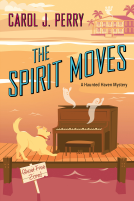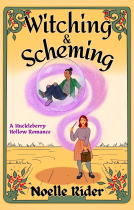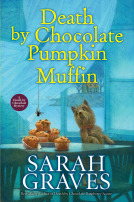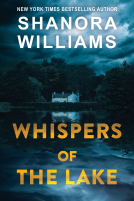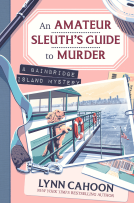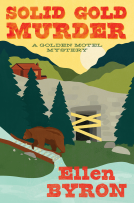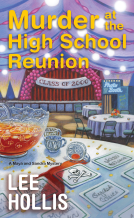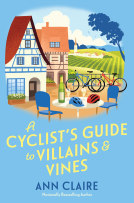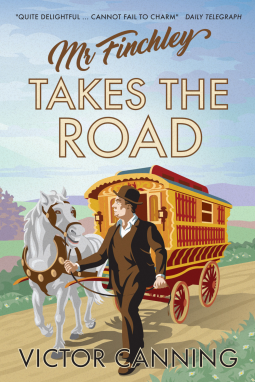
Mr Finchley Takes the Road
(Mr Finchley, Book 3)
by Victor Canning
This title was previously available on NetGalley and is now archived.
Send NetGalley books directly to your Kindle or Kindle app
1
To read on a Kindle or Kindle app, please add kindle@netgalley.com as an approved email address to receive files in your Amazon account. Click here for step-by-step instructions.
2
Also find your Kindle email address within your Amazon account, and enter it here.
Pub Date Jun 13 2019 | Archive Date Apr 10 2019
Talking about this book? Use #MrFinchley #NetGalley. More hashtag tips!
Description
Book 3 of the classic trilogy of humorous rural adventures through pre-war England
Mr. Finchley takes a fancy to a horse-drawn caravan that he sees for sale, but his new wife does not relish the prospect of a caravan journey so she goes to visit her brother, while he sets out to explore the countryside and go house-hunting.
While learning to handle the horse and the caravan, he encounters a variety of eccentrics and country characters, and several unsuitable houses. It gradually emerges that the caravan contains a secret, and Mr Finchley finds himself in real trouble – until his wife comes to the rescue.
Jerome meets Mr Bean in this gentle comedy series, which was a runaway bestseller on first publication in the 1930s and retains a timeless appeal today. It has been dramatized twice for BBC Radio, with the 1990 series regularly repeated.
Advance Praise
‘The longer we travel with Mr Finchley, the better we come to love him. He makes us share his bread and cheese, and beer and pipe. His delight at the beauties of the countryside and his mild astonishment at the strange ways of men are infectious … This is a quite delightful book, with an atmosphere of quiet contentment and humour that cannot fail to charm.’ Daily Telegraph
‘A paean to the beauties of the English countryside and the lovable oddities of the English character.’ New York Times
‘There is such a gentle humour in the book … Mr Finchley is the ideal Englishman.’ Peter Belloc, Daily Sketch
‘His gift of story-telling is obviously innate. Rarely does one come on so satisfying an amalgam of plot, characterisation and good writing.’ Punch
Available Editions
| EDITION | Ebook |
| ISBN | 9781788421607 |
| PRICE | $3.99 (USD) |
Links
Featured Reviews
 Reviewer 266180
Reviewer 266180
In Which Mr Finchley Follows His Dream....
A horse drawn carriage? - Mr Finchley thinks this perfection and an ideal way to explore the countryside! The third in this trilogy from Victor Canning following the escapades of the gentle and unassuming Mr Finchley. Now married, Mr Finchley continues to find himself in bizarre and amusing situations. Written in the 1930's, beautifully so, this book is a delight. Far removed from life as we know it, it has been both a pleasure and a joy to escape, along with Mr Finchley, to a more delightful and gentle world through the pages of these very wonderful books. Highly recommended.
(Review to be published on Amazon)
On first glance this is a gentle tale, set in a time before the Second World War which was quite a different world to that of today. However, it is much more. The story is interesting - Mr Finchley retires from his solicitor's office in London and wants to find a country retreat for his family, and events lead him to make the search with a yellow caravan pulled by a horse called Churchwarden.
There are some real laugh out loud moments - my favourite involving a pig, a parade and a runaway horse! There are also some very astute reflections on life, although just occasionally the author gets carried away and strays into pontification. But mostly the points made resonate clearly across the years.
The story is stopped from being too sugary by the sub-plot - someone is looking for this caravan, and becomes more and more aggressive in his efforts to track down Mr Finchley. And not all the characters Mr Finchley meets are as pleasant as they first appear.
Overall a very enjoyable read - and it would make an excellent film! The characters are likeable and well drawn, and the story is entertaining.
Thank you to NetGalley and Farrago for allowing me access to the ARC in exchange for an honest review.
 Kaye T, Reviewer
Kaye T, Reviewer
The third in the series of Mr. Finchley and his adventures. This one has him retired from his office job, and deciding to explore the English countryside. His wife is not interested in joining him in a horse drawn cart, so off he goes on more exploits. Written in the 1930s, during a simpler time, it is fun to escape the usually genres of today and read about all his adventures. Highly recommend this series overall, although at times a little farcical.
 Kay S, Reviewer
Kay S, Reviewer
Mr. Finchley Takes the Road, by Victor Canning, was originally published in 1940. It is the third book in a trilogy but reads well as a stand alone novel. Mr. Finchley, of the title is a mild mannered, middle aged, bachelor, solicitor's clerk. In this novel he buys a horse and caravan and travels around the British countryside is search of a house to purchase. Of course, he encounters lots of delightful, little adventures, amusing characters, and misunderstandings along the way.
This reviewer especially enjoyed the author's descriptions of the British countryside as he evoked a life style that has log faded away, A light and lovely read, it is easy to understand why this was part of such a popular series during the Depression years
Thank you to Netgalley for providing me with a free ARC of this novel in exchange for an honest review.
 Librarian 431790
Librarian 431790
I was happy to meet again Mr Finchley and read about his adventure.
I love the gentle humour, the historical setting and Mr Finchley.
I hope to be able to read other books in this series soon.
Highly recommended!
Many thanks to Farrago and Netgalley for this ARC, all opinions are mine.
 Emma W, Reviewer
Emma W, Reviewer
Mr Finchley retires!
I wish we still lived in these times. How amazing would it be to travel around the beautiful English countryside in a horse drawn caravan.
Mr Finchley doesn't disappoint again for the third time and is still managing to get himself into the most fascicle situations.
If you like a read which takes you back in time, I really recommend these books.
 Darren J, Reviewer
Darren J, Reviewer
In the final book of Victor Channing's Mr. Finchley adventures, our gentle protagonist is now married with an adopted son and just about to retire at age 50. As part of his plans Mr.Finchley and his wife plan to retire to the English countryside. This leads to him buying a horse and caravan to scour the countryside for a house to settle in. As expected to more adventures and escapades involving a series of characters and rogues do follow.
The book takes delight in its description of the English countryside and manages to fit in commentary regarding a romanticised past and complaints about the commercialism of advertisements in the countryside.
Like the previous two books, this cannot be recommended more highly.
 Janet P, Reviewer
Janet P, Reviewer
In this, the final book in the Mr. Finchley series, our newly retired hero buys a gypsy wagon and goes off into Kent to find a country farm for his family (his wife and their adopted son). As usual, he meets plenty of interesting characters and has plenty of adventures, good and bad.
But this volume had what is the funniest incident in the series. It's rolling on the floor hilarious. I won't give it away but suffice it to say that it involves a former circus horse, a sleepy driver, and people who are intent on strutting their stuff. Just thinking about it again makes me smile.
I'm looking forward to reading more of Canning's humorous novels.
 Reviewer 2883
Reviewer 2883
Though Mr. Finchley has retained his faith in (most of) humanity, his good humor will be tested by a few people along the way. As in the first book, there are some characters who happen to briefly cross paths with him then depart, leaving him and us ignorant of their fates. Some people are hardworking while others appear to be yearning for the dreams in life that they never seized when they had the chance. A few people embody the changing workforce as the new generation tries to better itself while the old stands and shakes its head, wondering what’s wrong with the honest toil that their forefathers knew. One man even seems to presage some of the issues bedeviling us today.
Later in life, Victor Canning wrote action and suspense books with exotic settings and I can’t help but wonder if he was already thinking about and plotting them based on the enthusiasm two of the characters display here for that genre. Most of the story is seen from Mr. Finchley’s POV though there is a hysterical and memorable scene told by Churchwarden – yes, the horse. A few characters from the second book show up towards the end and help solve a mystery and save the day. And in the end, the Finchleys just might have found that perfect house. B
 Cindy R, Reviewer
Cindy R, Reviewer
This is the third book in this series. Mr. Finchley Discovers His England is the first and Mr.Finchley Goes to Paris is the second..
As with the previous books, Mr. Finchley goes somewhere ( in this book house hunting across England ), and finds adventure at every turn. Adventure of ( mostly ) and good and pleasant kind.
This book, like the other two , was written in the 30's...so there are no televisions, cell phones or faxes. No tablets or GPS either. It is a remarkable, relaxed, and good read, in which all comes to a satisfying happy conclusion.
I highly recommend this book simply for the subtle reminding that we all need to be a bit more like Mr. Finchley and take in the world around us and enjoy ourselves a little more
 Jennifer C, Reviewer
Jennifer C, Reviewer
This was hard to rate for me. It’s more of a 3.5 stars. Thank you to NetGalley for a copy of this book in exchange for an honest review.
This book was written back in the 20’s or 30’s. It’s very poetic and slow paced. Mr. Finchley is a simple man who enjoys each moment. He sees the good in all aground him, doesn’t get mad easily and gains back a happy demeanor quickly after getting his dander up.
In this third installment of the series, Mr. Finchley buys a caravan and sets out to found a country home for his family. These books take me awhile to appreciate. In today’s world there is an inherit distrust of people and we move at a super face pace, as such, it takes me while to settle into the poetic beauty of the writing the meanders like a slow stream. Sometimes I want to scream at Mr. Finchley for his trusting nature but then I remind myself to slow down and enjoy the journey which is when I found myself enjoying the book more.
 Mary N, Reviewer
Mary N, Reviewer
5.0 out of 5 starsVery good book!
June 19, 2019
Format: Kindle Edition
I really love this series. This final book in the trilogy takes you on a nice journey with a horse and caravan. I love the characters, the setting and the time period. I received a complimentary copy from NetGalley and the publisher and this is my honest opinon.
A delightful book with a gentle humour that keeps you turning the pages.
A real treat when you just want a few hours escape from reality. Well written characters and an enjoyable story.
 Leyla J, Reviewer
Leyla J, Reviewer
Another wonderful meander in the happy world of Mr Finchley. In this book Mr Finchley has found a unique way of house hunting, a gypsy caravan. And what wonderful adventures, people and scraps he seems to have.
I love these books, they are gently and never ceases to bring a smile on my face, and even the trouble he gets into, you know it is all going to turn out okay - and they do in there own unique way.
 marie r, Reviewer
marie r, Reviewer
This is the third in the series although it is not essential to have read the others i think they help to set the scene for this one. This is a lovely easy read set in a time when life was lived at a slower pace. It recounts the adventures Mr Finchley has when he buys a caravan and tours Kent trying to find a country home. He meets people from all ends of society with a sanguine countenance and as in all good books of this type everything turns out well in the end
 Janet G, Reviewer
Janet G, Reviewer
Traveling England in a Horse Drawn Caravan!
Another grand adventure for Mr. Finchley! As he travels across England in a horse-drawn caravan he learns more about himself. This is a beautiful story that the reader can place himself in Mr.F's shoes and enjoy the journey vicariously through him. He ponders the wonders of nature, the nature of man and the truth of happiness. The story is fun and philosophical. While this book gives a glimpse into British life between the wars, it also shows it not to be quite the simple and easy life of family lore. I received this book for free from Net Galley and this is my honest review.
 Anjana D, Reviewer
Anjana D, Reviewer
This is the last book in the series, and if one has grown fond of Mr. Finchley and his eclectic family by now, it is more of a treat than the last two.
Mr.Finchley decides to retire- it is not a decision to be taken lightly. In order to secure his family's future in a new place, he sets off on yet another adventure. This time it is meant to be a leisurely paced travel, old-world style by a horse-drawn caravan. I say meant, because yet again, as is in his fate a lot of adventures befall him. It begins with the actual acquiring of the caravan and then a horse. Then learning to 'operate' the two together. This is followed by all those people who find a great listening ear in him and cling to him till he finds it hard to get rid of them. He travels far and wide trying to identify the best spot to set down roots but there seems to be more sinister trouble following him at his heels this time around.
He sends out regular missives to his wife and son and gets enthusiastic responses. The icing of the story for me was the communication between them all, they were so simple but yet filled with so much! I liked this book best of all and it was peppered with profound statements as he contemplates life and thought and everything related to humans and society in general. It doesn't get too much because a couple of pages following these profound contemplations something absurd happens from a thief returning his loot, to a pig saving his skin, being mistaken for a poacher or even his horse enjoying music and posters. This takes some of the seriousness out of his thoughts leaving behind just a mild message. I would have loved the book if it was a tiny bit shorter but even with that being the case, I might just get back to it someday for the pleasure of it.
I received all three books thanks to NetGalley and the publishers but the review is completely based on my own reading experience.
In another world, where our government or China's (or maybe, wonder of wonders, both) had the least competence in managing the outbreak of an infectious disease, I would have been in Kent myself this week. As is, I've been reading an account of a trip there which is necessarily closer to the idea of Kent than the 21st century real thing could ever hope to match. But one which, having come out in 1940, would already have represented a bygone world to its first readers – and even within that, if we take it as representing the world a few years earlier, is still threaded through with its own laments for how much the world has changed. Partial ones, to be sure – Mr Finchley and the narrator, who are often though not always in accord, have little time for automobiles and rush, none at all for advertising hoardings, but seem absolutely fine with hot and cold running water and electricity in homes, and never to note any contradiction in that.
It's interesting how many of the things which ain't what they used to be in this account continue to be exactly the same nowadays, like the system arranged for the benefit of financiers which leaves farmers, so much more necessary, mired in debt. Or people complaining how hard it is nowadays to think with all the distractions of the modern world, like cinema and radio – just like they do now about screens (or at least did until screens were legally mandated as our only allowable contact with the outside world, since when most though not all of the complainants seem to have wound their necks in a bit, which is at least one good thing to come out of this). Just as they did about theatre in the Renaissance or writing in the ancient world; just like they probably did back around the invention of speech, with a disapproving grunt. For a book about the ways in which the world has changed, it's reassuring in a wry sort of way how much is still so familiar, like the ghastly child whose indulgent parent thinks the beastly behaviour shows them to be "So high spirited...like all great artists". Elsewhere, of course, one does wince, as when the Captain extolling the delights of the sea talks about how "You can throw your litter as much as you like but the sea'll swallow it up, and a floating tin can is an object of curiosity out here, not an eyesore as it would be in a country hedge." Or Mr Finchley's Hampstead house: "he could sell it for twelve hundred pounds almost any day". But equally, one can come across the rant "Stealin' my rabbits, eh? Steal my pheasants, too, if you got the chance. And a man who'll steal other people's pheasants would just as soon come into your house, cut the throats of everyone there and make off the with the silver..." and think, isn't that exactly the same spurious slippery slope argument as the noughties 'You wouldn't steal a car...' promo which made some legally purchased DVDs such a good invitation to piracy?
That particular gem comes from the Colonel, a species of petty tyrant who still survives in the countryside now, albeit not quite so thoroughly indulged by the law. He's one of the important correctives to what could otherwise become a polemic, as too when Mr Finchley visits an old blacksmith and, talking to him about how he misses the good old days, sentiments with which the book broadly agrees, is given a stern reminder by one with first-hand experience that the good old days weren't so good for the children working from 8 to 6. Still, those darknesses are seldom allowed to get so deep for long. This is at heart a comic novel. Only occasionally an uproarious one (though the scene at the parade ground is a masterpiece of the form), but mostly the sort in which we're sure things will turn out for the best. Yes, it does feel the need to include an intrigue plot and a kidnapping, just like its two predecessors, which is no more welcome for being properly foreshadowed this time – though that foreshadowing does in passing include one interesting linguistic moment, when a man's haircut is described as lending him "a slight shade of feminism" where now we'd say 'femininity'. That, though, is a distraction in a book which would have worked much better left to its gentle lead plot, in which office worker Mr Finchley, freshly retired, buys a canary-yellow dream of a horse-drawn caravan and sets off with a sheaf of estate agents' notices to find his family a suitable new house in Kent, meeting curious people and having mild adventures along the way. After his two prior adventures, Finchley has been reset a little back into suited drone mode, but certainly not as drastically or annoyingly as in the second book, which we can now see to have been very much the Temple of Doom* of the series. Reading about his complicated feelings on retirement while Britain is locked down was an interesting contrast, that sense of life going on without him exactly what none of us now have because everyone's lives are on standby, at best. But that bittersweet sense of a routine lost even if chunks of it can't honestly be missed, that hit harder than it might otherwise have done. So too lines like "It was a pleasant, stirring warmth that invited the mind to thoughts of the country and lazy scenes that lay so close in the summer's future" – if only! And even before Mr Finchley makes it out of the city, the hymn to Hampstead Heath; the slow horse-drawn journey down past Tufnell Park Station, down Gray's Inn Road, across Blackfriars Bridge; even, gods help me, the traffic jam in Holborn, are now things to miss bitterly and wonder if or when we'll ever see them again. But it's outside the city that Canning really lets loose, always capturing the essence of the supporting cast perfectly in a line, but then using that space instead with seductive delineations of country scenes, charming villages and quiet pubs. Which don't always stay quiet, granted: the wonderfully named chapter "The effect of cider upon social conscience" demonstrates the proof of a fellow drinker's claim that "It's funny how few people really have the right kind of head for cider. The only folk who can really drink cider are marshmen, Somerset men whose blood is mixed with the damp of the rhines and sedgelands. Cider can't touch you if you've got mist and rain in your blood."** For the most part, though, it's a consoling English idyll: dreams of the open road where you're still never too far from home; liberty without loneliness; tradition without inconvenience.
*Not just in being the weak middle of a trilogy, but in its occasional tendency to lapse from mild xenophobic comedy into 'you have to remember it was a very different time'. Yes, this one does have the very occasional awkward moment – like talking about "the age-old racial urge that had filled their forefathers with a sense of the justice and correctness of their way of life. Man belonged to the land; the farther he went from it, the stronger became its call and the more turbulent his discontents" – but nowhere near on the same level as a book which seemed largely animated by visceral horror at the notion of leaving a young English lad to be raised by the French.
**Which last bit would cover Vikings too, I suppose, and thus perhaps explain my own fondness.
(Netgalley ARC)
 Abby S, Reviewer
Abby S, Reviewer
A lovely series in book three Mr.Finchley decides to take a trip in a horse drawn caravan .Of course this becomes a charming adventure with situations only he could get intowith characters that will make you smile laugh. a delicious series#netgalley #farragobooks
Another delightful story by Victor Canning.
Mr. Finchley Takes the Road is numerous and keeps you reading until the very end. A pleasure to read and I highly recommend anyone who like a good mystery.
You can’t help but fall in the love with the characters and the scenery is spectacular.
Highly recommend this book.
Readers who liked this book also liked:
Shanora Williams
General Fiction (Adult), Multicultural Interest, Mystery & Thrillers




